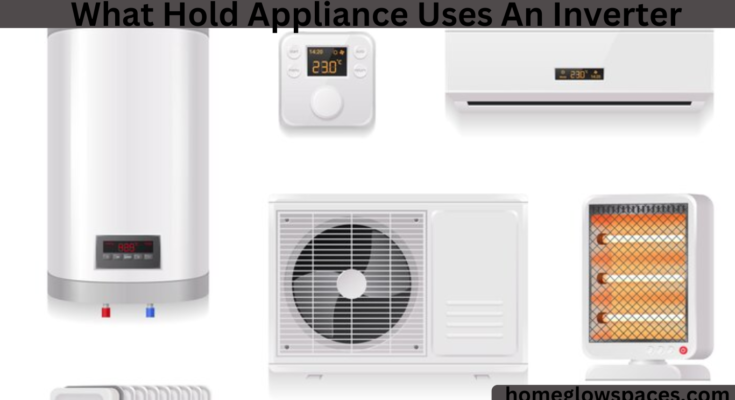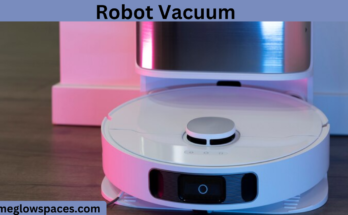Introduction
Today, the appliances used in our homes are inverters, which have become an integral part of our lives, revolutionizing the way we use electricity and also improving its management to a great extent. At their core, inverters are devices that convert electricity from direct current DC to alternating current AC, which is the standard form of electricity used in most of our homes. This technology enables appliances to operate more efficiently, provides a stable flow of electricity, and also reduces power losses. From refrigerators to air conditioners, inverters ensure excellent performance while using very little electricity. Inverter appliances are a popular choice in homes where energy awareness is possible.
Now a wide range of appliances used in homes use inverters to improve their performance and efficiency and include inverters in their home appliances. Inverter-equipped refrigerators or inverter refrigerators, for example, adjust the temperature inside them according to their cooling and also reduce electricity consumption, extending the life of the appliances. Similarly, air conditioners, inverter air conditioners, change the speed of their compressors and maintain the room temperature without stopping instead of running continuously. This not only saves electricity but also reduces noise a lot and makes the living environment much more comfortable.
The adoption of inverter-powered technology is not limited to the very large, but even small appliances like washing machines, microwaves and even fans have the potential to benefit from its power-saving capabilities. By allowing these appliances to operate without stopping and at a power level, inverters ensure that they only focus on their assigned task and use their energy on it. This efficiency also leads to significant savings on electricity bills. This also reduces the electricity bill and is in line with the global trend of reducing electricity consumption and carbon footprints. As this technology advances, inverters are poised to play an even more prominent role in shaping the future of energy-efficient home appliances.
Understanding Inverter Technology in Home Appliances
In domestic situations, inverter plans with modern technology are a revolutionary development that is constantly trying to improve energy efficiency and are moving forward. Unlike the traditional situations where we have appliances that work continuously all the time or work at a fixed speed, inverter-based appliances that adjust their power output according to real-time needs are much better, which can also save electricity, create a quiet environment and reduce our electricity bills. This technology is commonly found in air conditioners, refrigerators, washing machines and microwaves. For example, an inverter air conditioner adjusts the speed of its compressor to whatever temperature we give it and, instead of running continuously, optimizes its cooling cycle based on its stored items. By reducing electricity consumption and ensuring constant performance, appliances with inverter technology not only reduce electricity bills but also contribute to a sustainable lifestyle.
Common Home Appliances That Use Inverters
Inverters and planers are commonly used as appliances in modern homes and improve energy efficiency and also improve future performance and are used to provide consistent performance. Appliances like refrigerators, air conditioners, washing machines and microwave ovens often use inverter technology. This helps them adjust the speed of the fan or compressor according to the workload instead of working at full power all the time and allows them to control their excessive electricity consumption. Similarly, inverters are also found in solar power systems that convert the DC electricity generated by solar panels into AC electricity as needed for their home use and these appliances not only save electricity but also work more quietly and due to less wear and tear, they also last longer.
Benefits of Using Inverter Appliances at Home
Inverter appliances are very beneficial for home use, including improving energy efficiency by improving energy efficiency, not only that but also reducing electricity bills and providing a quieter environment. Unlike traditional appliances, appliances with inverter technology adjust power consumption based on the actual load, reducing energy consumption and providing optimal performance. This not only helps save money but also reduces environmental impact. Inverter appliances such as refrigerators, air conditioners and washing machines maintain constant performance, resulting in better cooling, accurate temperature control and gentle washing of clothes. Their durability and long life make them an excellent choice for modern households.
Benefits of Inverter Technology in Household Appliances
The demand for inverter technology in our everyday household appliances is constantly increasing and devices are operated more efficiently by adjusting the power consumed according to this demand. Instead of simply turning the motor on or off, an inverter continuously controls the speed of the motor and ensures that it consumes only the necessary power, which also reduces electricity bills. Inverter-powered appliances such as refrigerators and air conditioners, washing machines run for a very long time with better performance in very good environments and have many advantages. These appliances are especially beneficial in homes where energy saving and efficiency are a priority as they help maintain their temperature continuously and reduce wear and tear.
Inverter vs. Non-Inverter Appliances: What’s the Difference?
Inverter appliances or conventional appliances basically differ in how they manage electricity usage. Inverter appliances whose motor speed adjusts its speed according to the desired load and is used according to modern technology provide better and more accurate electricity consumption, more efficient and accurate energy consumption and provide better and more accurate information. As a result, the electricity bill also works and these appliances run in a quiet manner. On the other hand, conventional appliances or non-inverter appliances run at a fixed speed and have to be turned on and off repeatedly to maintain their desired target, which leads to higher power consumption and over time they are also prone to high wear and tear. Although inverter or non-inverter appliances are more expensive than non-inverter appliances, they are preferred and chosen by many households due to their long life and better performance.
How Inverters Enhance Appliance Efficiency
Inverters, instead of running appliances at full power all the time, adjust their motors based on how much power we need to supply them and play a very important role in improving the efficiency of our appliances. They allow appliances like AC refrigerators and washing machines or microwave ovens to run more efficiently by using only the power needed for specific tasks. With an inverter, these appliances save electricity and increase energy efficiency and reduce energy consumption, while maintaining their efficiency. This not only saves on electricity bills, but also prevents unnecessary wear and tear on the appliances, thus making them last longer.
How Inverter Technology Saves Energy in Home Appliances
Inverter technology is a device that helps save electricity in household appliances by adjusting the use of electricity based on the actual need. Unlike non-inverter appliances that run continuously at a fixed speed all the time, inverters vary the speed of the motor to meet the required requirements and adjust their compressor to the desired temperature at will, thus preventing unnecessary waste of electricity. For example, in an air conditioner or refrigerator, the inverter continuously controls the speed of the compressor to improve and maintain the desired temperature. As a result, electricity is consumed less and the components of the appliances are less prone to wear and tear. Due to the lack of excessive noise, the environment also remains calm, which also saves energy and over time, the electricity bill also reduces and the environment also remains calm.
Canclusion
The final result proved that those situations that are built on inverter technology, such as AC, refrigerator, washing machine, microwave oven, offer more benefits than non-inverter technology. Inverter technology controls the speed of the motor more precisely, which increases power efficiency, reduces its consumption, maintains a quiet environment, and the appliances last longer. By consuming or adjusting electricity as needed, these devices use less energy and also reduce electricity costs over time. Although they are a little expensive and the initial money is more expensive, they provide you with savings in the long run and are also very beneficial for your environment. Therefore, they are the best choice for users who are particular about efficiency and durability in their home appliances.



